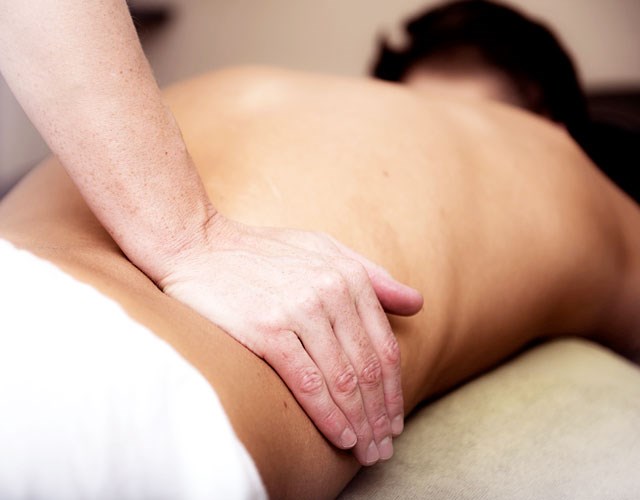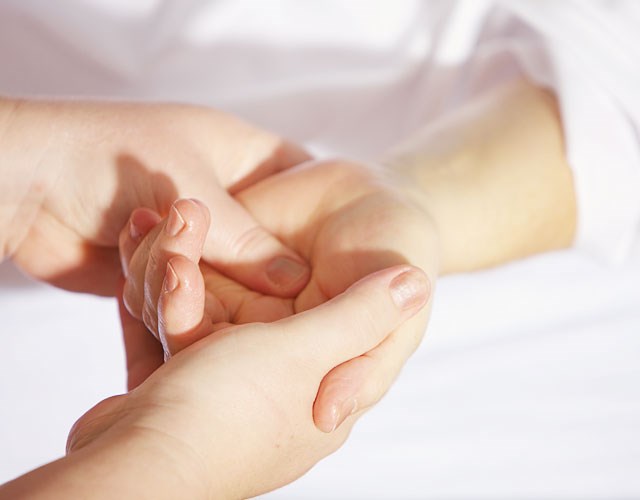

Research has shown that 80% of people suffer from back pain at some time in their life.
Most episodes of low back pain settle after a couple of weeks but many have a recurrent course with further acute episodes in up to 85% of sufferers. Back pain can have a significant impact on quality of life and is a major cause of time off work. Research also shows that chronic pain is often associated with depression, anxiety and poor sleep.
There are many different reasons for back pain, and if prevention and treatment is to be as effective as possible, it is important to have a good understanding of the cause in each individual. As well as those episodes when an obvious injury is the cause, some back pain can seem to occur for no reason, or as the result of a very minor strain. Back pain in general can often be traced to an accident or trauma, even one that occurred many years previously.
Back pain does not always arise immediately after an injury because the body is very good at adapting to injuries and accommodating strains and stresses. However, the disruption to spinal mechanics brought about by injury can cause strain to build up over a period of time and symptoms begin, often insidiously.
In treatment it is often necessary to release retained stresses from past injuries and trauma in order to relieve the current back pain, and reduce the chances of it recurring.

There are certain types of accident that are common contributors to back pain, even if they did not cause pain at the time. The most common ones are described here, but it is by no means a comprehensive list.
Lifting heavy or awkward weights including babies, children and shopping, can cause back strain, especially if not done correctly. If the spine is already under stress from another cause, it may only take lifting a small weight to cause strain, usually at the weakest point in the spine.
The spine is often jerked or twisted during accidents or falls, and parts can become quite impacted or compressed. Sit-down falls such as falling on ice or a slippery surface are particularly damaging because in addition to the direct impact on the base of the spine, the impact of the head onto the top of the spine causes strain at the top of the neck. Headaches and neck problems are very common after this type of injury.
Repetitive strain injury (RSI) is a general term used to describe the pain felt in muscles, nerves and tendons caused by repetitive movement and overuse. Work posture and repetitive actions within the working environment often lead to RSI injuries.
During childbirth the mother’s pelvis can become distorted as the baby’s head descends. In many cases distortion corrects itself, but if severe it can remain for many years and disrupt spinal and pelvic mechanics. This can cause very diverse symptoms including backache and headaches. See pregnancy and childbirth.
Joints are present throughout the body, including at the ankle, knee, hips, spine, elbows, shoulders and wrists. A joint is simply the point at which bones connect, and the majority of joints allow movement.
High impact activities like running can put stress on ankle, knee and hip joints and cause inflammation. Repeated overuse of a joint can lead to prolonged pain in and around the affected area. Chronic bad posture can lead to ongoing strain on joints in the spine or other parts of the body which can be extremely painful and long term wear and tear through the joints can lead onto osteoarthritis.

A thorough osteopathic examination will diagnose areas of your body affected by back/joint pain – both those you are highly aware of and those that might be brewing under the surface. Early detection and treatment of problematic joints allows for a good recovery and better long-term health. Osteopathy uses gentle manipulation to release tension and realign the joint, restoring the balance within the body and returning your skeleton to full health.

Osteopathic aims during diagnosis and treatment:
To book an appointment either call the number below or e-mail us. If you have any questions regarding osteopathy, and whether it can help you, a member of your family or an employee please get in touch via email.
Call 028 9068 1018 or email us.
Make an Enquiry